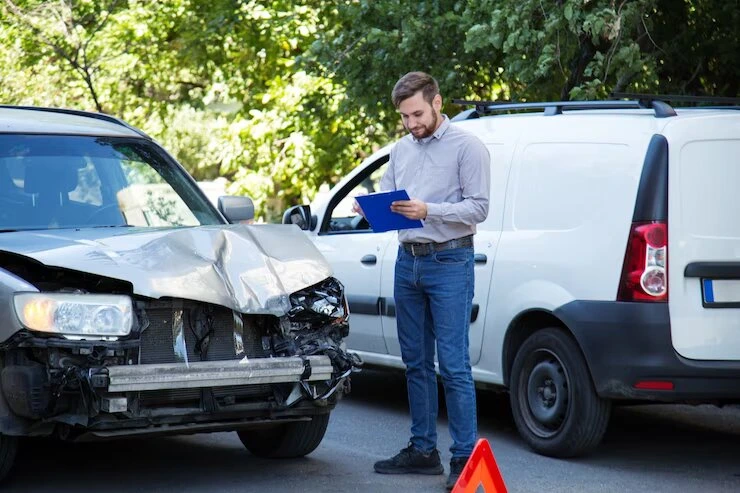personal injury lawyers
Fighting for maximum injury compensation for you and your family
No Fees Until We Win


What Type Of Witness Is Important In A Car Accident In NJ?
In New Jersey, understanding the impact of car accidents goes beyond the immediate physical damage.
It’s crucial to recognize the critical role witnesses play in these incidents.
From providing an unbiased perspective on the accident to aiding in legal and insurance processes, their contributions are invaluable.
This article delves into the various aspects of witness involvement in car accidents across New Jersey, examining their responsibilities.
The types of witnesses, and the importance of their statements in ensuring a fair and accurate resolution of these often complex and distressing events.

Witness Role in Car Accidents in New Jersey
In New Jersey, the role of witnesses in car accidents is significant. Here’s how they contribute:
- Objective Account of the Incident: Witnesses offer an unbiased view of the accident, which is crucial since those involved may have conflicting accounts.
- Assistance in Accident Reconstruction: Their statements can help in recreating the scene, particularly on busy roads like the NJ Turnpike or Garden State Parkway.
- Aiding in Legal and Insurance Processes: Witness testimonies can be pivotal in legal disputes and insurance claims, helping to establish fault and liability.
- Providing Vital Information: Details like the speed of the vehicles, traffic signals, and road conditions from a witness’s perspective can be crucial.
- Supporting Victim’s Claims: In cases where a driver’s statement is under question, a witness’s account can support their version of events.
Elements Impacting Witness Credibility
The credibility of a witness in a car accident is crucial and can be influenced by several factors:
- Consistency in Statements: Witnesses should consistently recount the accident details. Changing stories can harm their credibility.
- Relationship to the Parties Involved: If the witness knows someone involved in the accident, it might affect their impartiality.
- Location and Perspective: Witnesses who had a clear view and were close to the accident scene are often more reliable.
- Physical and Mental Condition: The ability to observe and remember details accurately can be impacted by factors like age, health, and sobriety.
- Attention at the Time of Accident: Witnesses who were fully attentive and not distracted (e.g., not on their phone) are generally more credible.
In New Jersey, roads like Route 1 or the Garden State Parkway are often busy; witnesses on these roads can provide valuable insights into accidents, given their credibility is established based on these elements.
Can Passengers be Witnesses?
Yes, passengers can be witnesses in car accidents.
New Jersey Evidence Rule 701: This rule governs the testimony of lay witnesses, like those in car accidents, and how their observations are treated in court.
Here’s how they play a role:
- Firsthand Perspective: As occupants of the vehicle involved, passengers can provide a unique and direct account of the accident.
- Details of the Incident: They can share insights on the speed, direction, and actions of the car just before the accident.
- Impact on Credibility: While their perspective is valuable, it’s important to note that their relationship with the driver might influence their testimony.
- Legal Implications: In New Jersey, passenger witnesses are often considered in legal and insurance proceedings to gain a comprehensive understanding of the accident.
Passengers’ accounts can be particularly insightful on busy New Jersey roads like the NJ Turnpike, where the specifics of an accident might be complex.
Responsibility of Witnesses in NJ Car Accidents
In New Jersey, witnesses of car accidents have certain responsibilities:
- Accurate Reporting: Witnesses should provide an honest and clear account of what they saw.
- Contacting Authorities: If possible, witnesses should call 911 or the local police, especially for serious accidents.
- Staying at the Scene: It’s helpful if witnesses stay at the accident scene until authorities arrive unless their safety is at risk.
- Providing Contact Information: Sharing their contact details with the involved parties or police can be crucial for further investigation.
- Legal Obligation: While there’s no legal requirement to stop and act as a witness in New Jersey, doing so can be pivotal in resolving the accident accurately.
Witnesses contribute significantly to understanding accidents on roads like the Garden State Parkway or the NJ Turnpike, where incidents can be complex.
Types of Witnesses in New Jersey
In New Jersey, different types of witnesses can provide valuable information in car accident cases:
- Eyewitnesses: People who saw the accident happen. They might be pedestrians, other drivers, or local shopkeepers.
- Expert Witnesses: You can also consult with Expert Witness, professionals like accident reconstruction experts or medical professionals who offer specialized knowledge.
- Passenger Witnesses: Passengers from the involved vehicles can give a firsthand account.
- First Responders: Police, EMTs, or firefighters who respond to the scene can provide insights based on their observations and professional experience.
Case Law Example: Tarr v. Ciasulli, 181 N.J. 70 (2004), where the New Jersey Supreme Court dealt with the issue of eyewitness testimony in car accidents, can be referenced to understand the legal perspective on witness credibility in such incidents.
Why Witnesses are Needed After an Accident
Witnesses are essential after a car accident for several reasons:
- Objective Viewpoint: Witnesses provide an unbiased account of the accident, which is crucial when those involved have conflicting stories.
- Accident Reconstruction: Their testimonies can help in accurately reconstructing the accident, especially on complex roadways like the NJ Turnpike.
- Establishing Fault: Witness statements can be key in determining who was at fault.
- Legal Proceedings: In court cases, witnesses can provide vital testimony.
- Insurance Claims: Witness accounts can support insurance claims, helping to establish the validity of the events reported.
Consulting Lawyers in New Jersey
Consulting a lawyer in New Jersey after a car accident is crucial for several reasons:
Legal Expertise: Lawyers have a deep understanding of New Jersey’s traffic laws and can navigate the legal system effectively.
Handling Insurance Claims: They can deal with insurance companies, ensuring you receive fair compensation.
Gathering Evidence: Lawyers can help collect crucial evidence like witness statements and accident reports.
Representing in Court: If needed, they can represent you in legal proceedings.
In New Jersey, understanding the impact of car accidents extends beyond physical damage. It’s essential to recognize the critical role witnesses play in these incidents.
From providing unbiased perspectives to aiding in legal and insurance processes, their contributions are invaluable.
This article explores various aspects of witness involvement in car accidents across New Jersey.
It examines their responsibilities, the types of witnesses, and the importance of their statements in ensuring a fair and accurate resolution.
Consulting with experienced legal professionals like Rosengard Law Group can further aid in effectively navigating these complex situations.
Insurance Companies and Witness Statements
In New Jersey, insurance companies play a key role in car accident cases, particularly regarding witness statements:
- Evaluating Claims: Insurance companies use witness statements to assess the validity of claims.
- Determining Fault: Witness accounts can help in determining who was at fault in the accident.
- Settlement Negotiations: These statements are crucial in negotiations for settlements.
- Avoiding Litigation: Accurate witness testimonies can resolve disputes without going to court.
Police and Witness Statements in NJ
In New Jersey, the role of the police in collecting witness statements after a car accident is crucial:
- Initial Investigation: Police arriving at the accident scene will often gather statements from witnesses as part of their initial investigation.
- Accident Report: These statements are typically included in the official accident report, a key document in any subsequent legal or insurance proceedings.
- Establishing Facts: Witness statements help the police establish the facts of the accident, which is especially important on busy roads like the Garden State Parkway or the NJ Turnpike.
- Legal Proceedings: These statements can be used in court if the accident leads to legal action.
FAQs
Why are witness statements most important in an accident in New Jersey
Witness statements in New Jersey are vital as they offer unbiased perspectives essential for determining the facts of an accident, crucial in legal and insurance resolutions.
What happens if someone can’t find any witnesses after an accident
If there are no witnesses to an accident in New Jersey, the case may rely more on physical evidence, such as CCTV, photos, and official reports like police and medical records for resolution.
Conclusion
Witnesses play a crucial role in car accidents in New Jersey, from establishing facts to aiding in legal and insurance claims.
Their unbiased accounts are invaluable in comprehensively understanding the events of an accident.
Witnesses offer objective perspectives, aiding in accident reconstruction and legal processes.
They provide vital information, which is especially significant on busy roads like the NJ Turnpike.
While not legally obligated, their participation can be pivotal in resolving accidents. Whether they are eyewitnesses, experts, passengers, or first responders, their accounts shape the understanding of the incident.
As such, their contributions are invaluable in legal and insurance contexts, ensuring a fair and accurate resolution to car accidents in New Jersey.

Free Injury Case Evaluation
Send the form below and we will call you back in minutes.
…or Call Us Now
856-284-6446
